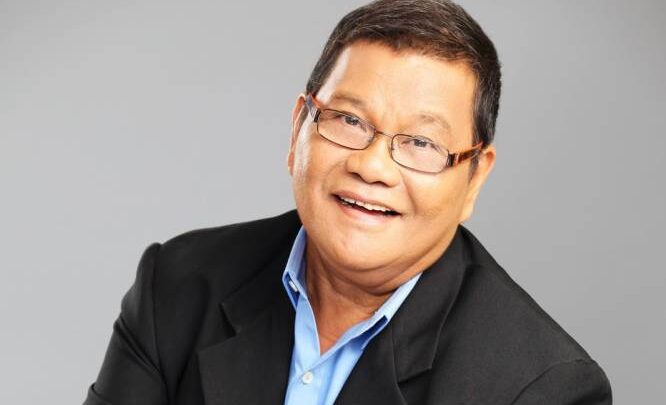Instead of limiting exposure to international film festivals to cope with its recent budget cut, the Film Development Council of the Philippines (FDCP) should reach out to more film-related groups abroad to help educate and develop Filipino directors and their audiences, said award-winning filmmaker Joel Lamangan.
The FDCP recently announced that it would participate in only five international film festivals this year and would instead focus on creating programs geared toward educating film students and audiences, particularly those from the regions.
“That’s not necessarily a good thing. We can still educate them without having to limit our exposure abroad. In fact, participating in festivals is another form of education. Like other film directors and producers who attend festivals, I have learned so much from seminars and talks there, and from watching films, some of which will never be shown in the Philippines,” Lamangan told Inquirer Entertainment in an interview on Wednesday night.
“It is in festivals where I’ve come to terms with the realities of my job as a director. That is something that the FDCP should consider. I don’t think they should choose between two ideas. It’s all about creating the right programs,” he pointed out.
Promote Filipino culture
What the FDCP should be doing, said Lamangan, is collaborating with the various embassies in the Philippines. “Why is it that the Canadian, German and French embassies are able to mount their respective film week events in our country and we cannot? The FDCP should ask these embassies to allow us to show Filipino films in their countries not only to promote our films, but also to orient them on our culture,” Lamangan suggested.
Incidentally, Lamangan is releasing a film titled “Apo Hapon,” which tells two stories of love between Filipino and Japanese characters—one set during World War II and the other at present. It starts screening nationwide on March 6.
“It is fiction, but based on historical facts,” Lamangan began. “It’s about a Japanese woman named Mizuki (played by Sakura Ayoshi) who flies to the Philippines to know for certain if the story about her great grandfather is correct—that he was a traitor of the army. She seeks help from the National Historical Commission that promptly sends a historian named Resyon (JC de Vera) to accompany her on her visit to the Cordillera Region. She eventually discovers that not only was her great grandfather considered a hero, but a statue was even built for him in a town in Benguet.”
This was because the soldier Kazuo Toro (Fumiya Sankai), who fell in love with an Igorot woman, turned his back on violence and instead helped the farming community there set up an effective irrigation system. Conflict arises when Mizuki, who is also a medical doctor, falls for Reyson and feels torn between returning to Japan to practice her profession and following her heart.
Featuring Japanese actress
The film is produced by the Japanese outfit GK Productions. Lamangan said the group approached him because it wanted to feature Ayoshi. “Fortunately, the Japanese actress is really good. She was able to deliver what was expected of her even though she isn’t well-versed in English and Tagalog. Japanese people generally cannot pronounce the letter R very well, but we found her delivery in Tagalog really cute,” Lamangan said, adding that he personally picked Sankai to play the WWII soldier. Sankai’s entry to Philippine show biz was via the reality talent search “Pinoy Big Brother.” He was PBB’s first full-blooded Japanese housemate.
The differences in Japanese and Philippine tradition proved to be a challenge for Lamangan as the director, he said. “I had to explain to my Japanese actress every scene. She needed to understand in detail where each action and reaction were based on. I also had to explain to her the cultural expressions of Filipinos. I told her that while bowing in Japan is a sign of respect, here in the Philippines, you show it through pagmamano. I had to stop the girl from bowing in every scene. Apparently, the older the person, the lower you have to bow. I said, ‘You don’t do that here.’ She said, ‘But I’m Japanese.’ I answered, ‘You can do that, but not all the time,’” Lamangan recalled.
He also needed to explain how kissing scenes are done the Filipino way, Lamangan added. “She had to learn how Pinoys kiss for the screen. I really took the effort to explain certain things because of the differences in cultural experiences between the two countries. Because she is an intelligent actress, she understood,” he said.
“Apo Hapon,” written by Eric Ramos, also features Nella Dizon, Lianne Valentin, Perla Bautista, Jim Pebanco, Marcus Madrigal, Rico Barrera and Prince Clemente. INQ
